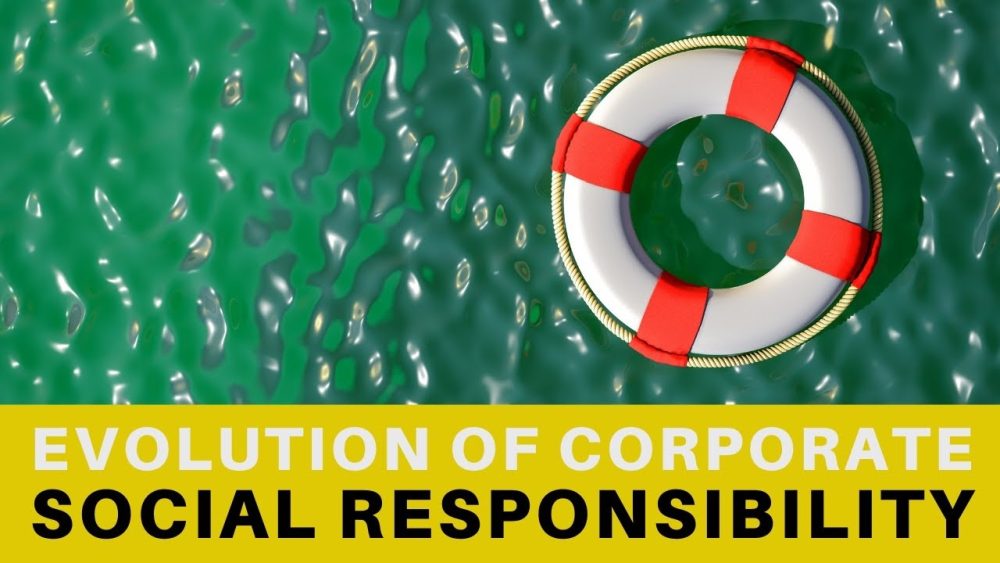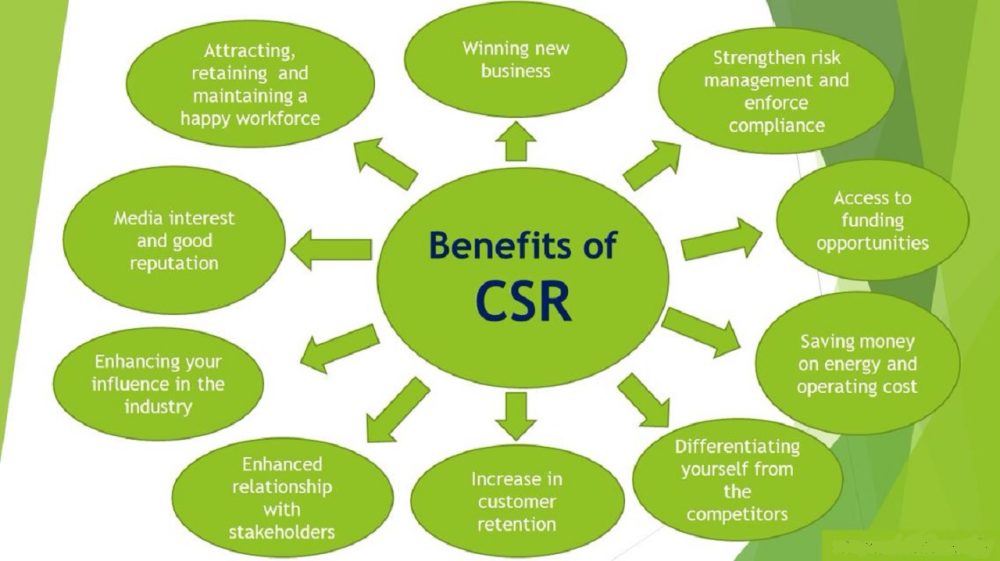Corporate Social Responsibility (CSR)
Driving Sustainable Business Practices for a Better World
Corporate Social Responsibility (CSR) refers to the ethical and responsible behavior of companies towards society and the environment. It is a concept that goes beyond profit-making and emphasizes the impact of business activities on various stakeholders, including employees, customers, communities, and the environment.
CSR involves the integration of social, environmental, and ethical considerations into a company’s core operations and decision-making processes.
Importance of CSR in today’s business landscape
In today’s globalized and interconnected world, businesses are increasingly expected to operate in a socially and environmentally responsible manner. CSR has gained significant importance due to several reasons:
- Changing consumer expectations: Consumers are becoming more conscious about the impact of their purchasing decisions. They prefer to support companies that align with their values and contribute positively to society.
- Stakeholder demands: Investors, employees, communities, and regulatory bodies are increasingly demanding transparency and accountability from companies. CSR helps build trust and maintain positive relationships with these stakeholders.
- Mitigating risks: Engaging in socially irresponsible practices can lead to reputational damage, legal issues, and financial losses. Implementing CSR initiatives helps businesses identify and mitigate potential risks.
Evolution of CSR over time
Corporate Social Responsibility (CSR) has changed a lot over the years. It started as a simple way for companies to give back through charitable donations and sponsorships. Now, it has become a strategic and essential part of business practices. Companies focus on creating long-term value for society while aligning their efforts with their goals.
Businesses must operate legally and transparently. The Risks of Working Under the Table can harm a company’s reputation, lead to legal penalties, and cause financial losses. Ethical practices not only build trust but also ensure sustainable growth for businesses and the communities they
However, the concept has evolved to encompass a broader range of activities, including sustainable business practices, responsible supply chain management, and community development initiatives. Today, CSR is seen as a key driver for long-term business success and sustainable development.
Key Components of CSR
Key components of CSR include ethical business practices, environmental sustainability, community engagement, responsible supply chain management, and employee well-being and diversity.
Environmental Responsibility
Environmental responsibility focuses on minimizing the negative impact of business activities on the environment and promoting sustainable resource management. Key areas of focus include:
- Sustainable resource management: Adopting practices that minimize resource consumption, promote recycling and waste reduction, and encourage the use of renewable energy sources.
- Pollution prevention and reduction: Implementing measures to minimize pollution, including air, water, and soil pollution. This may involve implementing clean technologies, proper waste management, and adherence to environmental regulations.
- Conservation of biodiversity: Taking steps to protect and preserve ecosystems and biodiversity. This may include supporting conservation initiatives, engaging in reforestation efforts, and minimizing habitat destruction.
Social Responsibility
Social responsibility involves promoting the well-being and welfare of employees, communities, and society at large. Key areas of focus include:
- Employee welfare and well-being: Ensuring fair and safe working conditions, providing opportunities for professional development, promoting work-life balance, and offering competitive employee benefits.
- Community engagement and development: Engaging with local communities, understanding their needs, and implementing initiatives that contribute to their social and economic development. This may involve supporting education, healthcare, infrastructure development, and cultural programs.
- Human rights and labor practices: Respecting and promoting human rights, ensuring fair labor practices, and fostering diversity, inclusion, and equality within the organization. This includes providing equal opportunities, fair wages, and safe working conditions for employees.
Ethical Responsibility
Ethical responsibility focuses on conducting business with integrity, transparency, and fairness. Key areas of focus include:
- Business ethics and integrity: Adhering to ethical standards in all business dealings, including fair competition, anti-corruption measures, and responsible marketing practices.
- Transparency and accountability: Promoting transparency in financial reporting, governance structures, and supply chain practices. This includes disclosing relevant information to stakeholders and ensuring accountability for actions.
- Fairtrade practices: Ensuring fair treatment of suppliers, promoting responsible sourcing, and supporting fair trade principles. This involves avoiding exploitative practices and fostering sustainable relationships along the supply chain.
Economic Responsibility
Economic responsibility emphasizes the creation of long-term value for shareholders and other stakeholders. Key areas of focus include:
- Responsible corporate governance: Implementing effective governance structures and practices that ensure ethical decision-making, risk management, and accountability to stakeholders.
- Stakeholder value creation: Balancing the interests of different stakeholders, including shareholders, employees, customers, and communities, to create sustainable value for all.
- Philanthropy and giving back: Engaging in philanthropic activities and contributing financial resources, expertise, or products/services to address social and environmental challenges.
Benefits of CSR
CSR brings numerous benefits to businesses, including enhanced reputation, increased innovation, improved profitability, higher employee engagement, and positive societal impact.
Enhanced brand reputation and image
Engaging in CSR initiatives helps build a positive brand reputation and enhances the company’s image. Customers are more likely to trust and support companies that demonstrate a commitment to social and environmental responsibility.
Competitive advantage and market differentiation
Implementing CSR practices can differentiate a company from its competitors. It enables businesses to stand out by offering unique value propositions that align with the values and preferences of socially conscious consumers.
Employee attraction and retention
CSR initiatives contribute to employee satisfaction, engagement, and loyalty. Employees are more likely to be motivated and committed to organizations that demonstrate a genuine concern for their well-being and contribute to social causes.
Improved financial performance
CSR practices can positively impact a company’s financial performance. By minimizing risks, reducing costs through efficiency improvements, and attracting socially conscious investors, CSR can contribute to long-term profitability and sustainability.
Strengthened stakeholder relationships
CSR initiatives foster positive relationships with various stakeholders, including customers, employees, investors, suppliers, and communities. These relationships are critical for long-term business success and can lead to increased collaboration, support, and goodwill.
Reduced regulatory risks
By proactively addressing social and environmental concerns, companies can minimize the risk of regulatory scrutiny and potential legal challenges. Compliance with laws and regulations related to CSR helps mitigate legal and reputational risks.
Implementation of CSR
Implementing CSR involves integrating ethical, social, and environmental aspects into business practices, ensuring sustainable impact, and aligning with company values.
Developing a CSR strategy
Developing a comprehensive CSR strategy involves several key steps:
- Assessing the company’s impact and risks: Conducting a thorough analysis to identify the social, environmental, and ethical risks and impacts associated with the company’s operations, products, and services.
- Identifying key CSR focus areas: Prioritizing CSR issues based on their significance to the business and stakeholders. This may involve considering industry-specific challenges, stakeholder expectations, and materiality assessments.
- Setting goals and targets: Establishing clear and measurable goals and targets that align with the company’s mission, values, and long-term objectives. These goals should be ambitious, achievable, and time-bound.
Integrating CSR into the business model
Integrating CSR into the business model requires a holistic approach that permeates the entire organization:
- Embedding CSR into corporate culture and values: Communicating and promoting CSR values throughout the organization, from top management to employees at all levels. This involves fostering a culture of ethics, responsibility, and sustainability.
- Incorporating CSR into decision-making processes: Integrating CSR considerations into strategic decision-making, product development, supply chain management, and other business processes. This ensures that CSR becomes a core part of the company’s day-to-day operations.
- Allocating resources for CSR initiatives: Allocating financial, human, and technological resources to support the implementation of CSR initiatives. This may involve establishing dedicated CSR departments or teams, providing training and capacity-building programs, and allocating budgets specifically for CSR activities.
Collaboration and partnerships
Collaboration and partnerships play a crucial role in the successful implementation of CSR initiatives:
- Engaging with stakeholders: Actively involving stakeholders, including employees, customers, communities, NGOs, and government agencies, in the development and implementation of CSR initiatives. This ensures that the initiatives are aligned with stakeholder expectations and address relevant social and environmental challenges.
- Collaborating with NGOs and government agencies: Partnering with external organizations that have expertise and experience in specific CSR areas. Such collaborations can provide valuable insights, resources, and support for effective implementation.
- Forming strategic partnerships: Collaborating with other businesses, industry associations, and academic institutions to address common CSR challenges and drive collective action. Strategic partnerships can amplify the impact of CSR initiatives and foster innovation and knowledge sharing.
Measuring and reporting CSR performance
Measuring and reporting CSR performance is essential for transparency, accountability, and continuous improvement:
- Key performance indicators (KPIs): Identifying and tracking relevant KPIs to measure the impact and progress of CSR initiatives. These may include metrics related to environmental footprint, employee satisfaction, community engagement, supply chain performance, and philanthropic contributions.
- Sustainability reporting frameworks: Adhering to established sustainability reporting frameworks, such as the Global Reporting Initiative (GRI) or the Sustainability Accounting Standards Board (SASB) standards, to ensure consistency, comparability, and credibility in reporting CSR performance.
- External verification and assurance: Seeking external verification and assurance of CSR performance through independent audits or certifications. This helps enhance the credibility and reliability of CSR reporting.
Examples of Successful CSR Initiatives
Examples of successful CSR initiatives include Patagonia’s sustainable practices, Microsoft’s digital inclusion programs, and TOMS Shoes’ “One for One” donation model.
Patagonia: Environmental Stewardship and Sustainable Fashion
Patagonia, an outdoor clothing and gear company, has embedded environmental responsibility into its business model. It invests in sustainable materials, promotes recycling and repair programs, and supports grassroots environmental organizations. Patagonia’s commitment to the environment has enhanced its brand reputation and attracted environmentally conscious customers.
Microsoft: Empowering Communities through Technology
Microsoft’s CSR initiatives focus on leveraging technology to address social and economic challenges. It provides technology access and training to underserved communities, supports education programs, and invests in initiatives to bridge the digital divide. Microsoft’s efforts have helped empower individuals and communities, while also driving innovation and market growth.
Unilever: Sustainable Sourcing and Responsible Consumption
Unilever, a consumer goods company, has made sustainability a core part of its business strategy. It has set ambitious goals to reduce its environmental footprint, promote sustainable sourcing of raw materials, and encourage responsible consumption through product innovations. Unilever’s sustainable practices have contributed to its brand differentiation and market leadership.
TOMS: One-for-One Model and Social Entrepreneurship
TOMS, a footwear and eyewear company, pioneered the “One for One” model, where it donates a pair of shoes or eyewear to a person in need for every product purchased. This social entrepreneurship approach has resonated with consumers and helped address critical social issues, such as poverty and lack of access to necessities.
Challenges and Criticisms of CSR
Challenges and criticisms of CSR include difficulties in measuring impact, skepticism about true intentions, tensions between profitability and social/environmental concerns, and the lack of global standards and regulations. Nonetheless, these discussions drive the pursuit of improved approaches to corporate responsibility.
Greenwashing and superficial CSR practices
Some companies engage in greenwashing, where they make false or exaggerated claims about their CSR practices to create a positive image. This undermines the credibility and effectiveness of CSR efforts and can lead to skepticism among stakeholders.
Balancing financial and social/environmental goals
Businesses often face challenges in balancing financial objectives with social and environmental goals. While CSR initiatives can have long-term benefits, they may require upfront investments and may not yield immediate financial returns, posing challenges for businesses operating in competitive markets.
Lack of standardized metrics for measuring impact
Measuring the impact of CSR initiatives can be complex, as there is a lack of standardized metrics and methodologies. This makes it challenging to compare and benchmark CSR performance across companies and sectors.
Difficulties in engaging all stakeholders
Engaging all stakeholders, particularly those with conflicting interests, can be challenging. Balancing the diverse expectations and priorities of stakeholders requires effective communication, collaboration, and negotiation skills.
Future Trends in CSR
Future trends in CSR include an increased focus on sustainability and environmental stewardship, the integration of technology and CSR, the concept of shared value, and greater emphasis on stakeholder engagement and collaboration. These trends reflect a growing commitment by businesses to create positive and lasting impacts on society and the environment.
Focus on climate change and carbon neutrality.y
As the urgency to address climate change increases, businesses are expected to prioritize efforts to reduce carbon emissions, transition to renewable energy sources, and adopt circular economy practices. The focus on carbon neutrality and climate action is likely to intensify in the coming years.
Embracing diversity, inclusion, and equality
Companies are increasingly recognizing the importance of diversity, inclusion, and equality as key components of CSR. Future trends are expected to focus on creating inclusive workplaces, promoting gender and racial equality, and ensuring equal opportunities for all.
Technology-driven innovations for social good
Advancements in technology, such as artificial intelligence, blockchain, and big data analytics, present opportunities for businesses to drive social impact and address societal challenges. Future trends in CSR are likely to involve leveraging these technologies for innovative solutions to social and environmental issues.
Supply chain transparency and ethical sourcing
As consumers demand greater transparency and accountability in supply chains, companies will need to focus on ethical sourcing practices, responsible supplier management, and traceability. Supply chain transparency is likely to become a crucial aspect of CSR in the future.
Conclusion
In conclusion, Corporate Social Responsibility (CSR) is a vital aspect of modern business practices. It encompasses environmental, social, ethical, and economic responsibilities that businesses must integrate into their operations. Implementing CSR initiatives brings numerous benefits, such as enhanced brand reputation, competitive advantage, and stakeholder satisfaction.
However, businesses face challenges in effectively implementing CSR, including greenwashing, balancing financial and social/environmental goals, and measuring impact. Despite these challenges, the future of CSR holds promising trends, such as climate action, diversity and inclusion, technology-driven innovations, and supply chain transparency.
By prioritizing CSR, businesses can contribute to sustainable development and create a positive impact on society and the environment.











